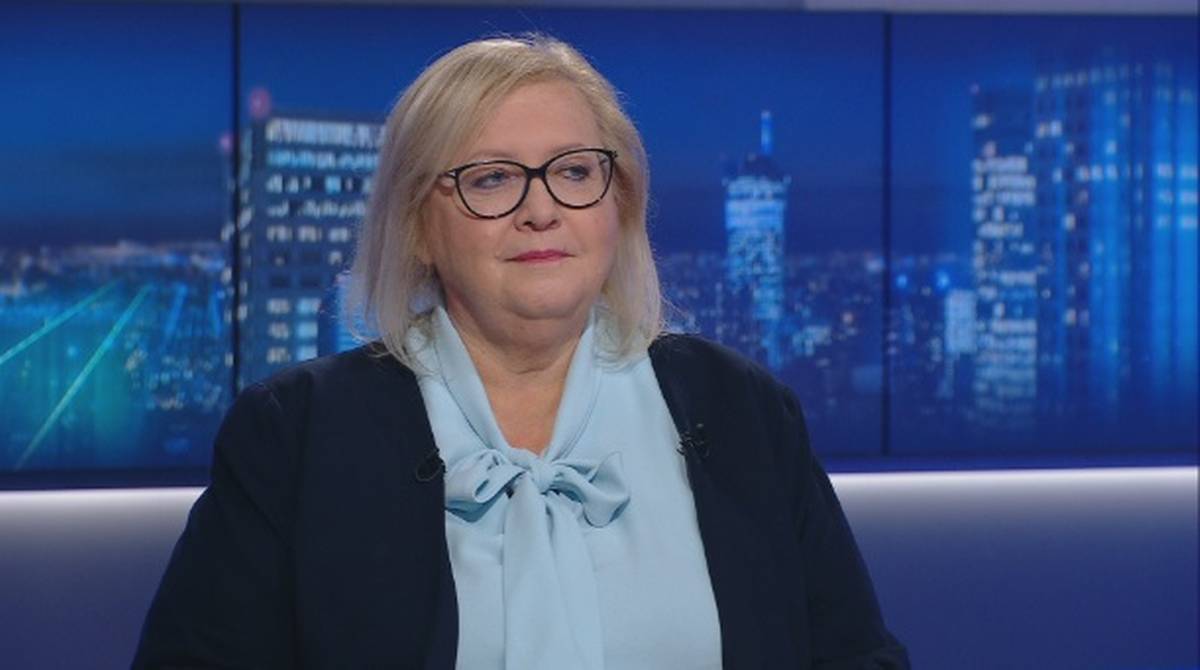Description of the facts
By judgement of 21.3.2022, II K 173/21, territory Court of S. determining that the suspect J.L. he committed an act consisting in the fact that he stored gas firearms RG-89 IN 93 No 9463 kal at his place of residence in K. no later than January 2015. 9 mm in a way that enabled unauthorised persons to access it, i.e. in a wooden cabinet not satisfying the requirements of at least the SI class according to the PN-EN 14450 standard, thereby inadvertently causing the failure of the weapon, i.e. an offence with Article 263 §4 KK and pursuant to Article 66 §1 KK and Article 67 §1 KK, to surrender the criminal proceedings against the suspect conditionally for the period of the trial.
This ruling passed, without appeal, on 29.3.2022.
The judgement was dismissed by the lawyer General, who accused of gross and materially affecting the content of the judgement of a violation of the substantive and procedural criminal law provisions, namely Article 101(1)(4) of the Constitutional Tribunal in conjunction with Article 17(1)(6) of the NCP.
The applicant requested the annulment of the judgement under appeal and the remission of proceedings on the basis of Article 17(1)(6) of the NCP.
The ultimate Court, after proceeding the cassation brought by the lawyer General in favour of the defendant, waived the contested judgement and, pursuant to Article 439 §1(9) of the NCP in conjunction with Article 17(1)(6) of the NCP, dismissed the proceedings.
Reasons for SN
According to the ultimate Court, the cassation is justified and to an apparent extent, which allowed it to be identified at the sitting under Article 535(5) of the NCP.
In the present case, there has been a serious violation of the substantive law laid down in the cassation, resulting in a criminal liability judgment, despite the negative procedural condition laid down in Article 17(1)(6) of the NCP in the form of a limitation of the criminality attributed to the accused offence. It is clear from the factual findings made on the time of the offence that it occurred indefinitely no later than January 2015.
The criminality attributed to the accused offence under Article 263(4) of the KK, which is punishable by fines, restrictions on liberty or imprisonment up to a year, shall cease with the expiry of 5 years after the offence has been committed (Article 101(1)(4) of the KK). An extension of the limitation period for that act for another 5 years is possible only if proceedings are initiated against a individual within the period provided for in Article 101(1)(4) of the KK, i.e. within 5 years of the act (Article 102 of the KK). The provision of Article 102 of the KK provides that where proceedings have been initiated during the period referred to in Article 101 of the KK, the criminality of the offences referred to in Article 101(1) of the KK shall cease with the expiry of 10 years and, in another cases, 5 years after the end of that period. At the same time, Article 2 of the Act of 15.1.2016 amending the Criminal Code Act (Journal of Laws of 2016, item 189), by which the content of Article 102 of the KK was amended, indicates that the statute of limitation given by the amending Act applies to acts committed before the date of entry into force of that Act, unless the limitation period has expired. Therefore, where, until the date of entry into force of the amendment of the statute of limitations (i.e. until 2.3.2016) there has been no limitation, the limitation of criminality must be assessed in accordance with Article 101 KK and Article 102 KK, as it stood at the date of the ruling, irrespective of whether it is essential to mention to the conflict-of-law regulation laid down in Article 4(1) KK (cf. the order of the ultimate Court of 20.10.2020, V KK 375/20, Legalis).
From the point of view of the limitation period for criminal offences, the act attributed in the judgement is decisive, not the act alleged in the indictment (cf. ultimate Court judgement 7.8.2018, IV KK 456/18). At the same time, as has been repeatedly emphasised in the case-law of the ultimate Court, in the case of a coincidence of negative procedural conditions as defined in Article 17(1)(1) and (2) of the NCPs and Article 17(1)(6) of the NCPs, The Court of First Instance should dismiss proceedings on grounds of the inadmissible conduct of the proceedings. However, this rule does not apply if the coincidence of these conditions is found only after the completion of the evidence and explanation of all the facts of the case (cf. the ultimate Court order of 27.1.2011, I KZP 27/10, Legalis). At that time, remission due to statute of limitations is permissible, but only if there are no grounds for acquittal of the accused for deficiency of action or for deficiency of marks of action or deficiency of guilt. It is besides pointed out that remission due to statute of limitations is always in the question if the existence of the act, its characteristics and its responsibilities require further command, as proceedings in this substance preclude the limitation of criminality (cf. the ultimate Court order of 2.7.2002, IV KKN 264/99, Legalis and the ultimate Court order of 3.4.2002, V KKN 484/00, Legalis).
These comments, as the lawyer General rightly sees, take on peculiar importance in the facts of this case, given the date of the prosecution's accusation as indicated by the prosecutor in the indictment. J.L. In view of the wording of Article 101(1)(4) of the CCC, it must be concluded that the criminality of the alleged act, which was to be committed no later than 11.2014, i.e. before 1.11.2014, ceased on 31.10.2019, which in the absence of apparent grounds for acquittal J.L. from committing an act alleged by the indictment and from the absence of circumstances extending or suspending the limitation of the criminality of that act, she ordered the Court of First Instance, at the time of filing the indictment (i.e. 31.3.2021), in accordance with Article 17(1)(6) of the NCP, to discontinue criminal proceedings against the existence of a negative procedural condition in the form of limitation of criminality. In this situation it is essential to analyse whether the limitation period for criminality of an act with Article 263(4) of the KK, alleged J.L.has not been extended.
He was right to see that, in the facts of the case in question, at specified a date of offence with Article 263(4) of the Constitutional Tribunal, there was no prolongation or interruption of the limitation period of criminality of the action attributed to the accused J.L. judgement of the territory Court of S. of 21.3.2022. The analysis of the applicable government leads to the conclusion that there has been no extension of the limitation period for the action attributed to the accused. Before the date of cessation of the criminal offence resulting from Article 101(1)(4) of the KK, i.e. within 5 years of the offence, i.e. before 31 January 2020, there was no initiation of proceedings against J.L. for an action under Article 263(4) of the KK (this activity, as shown above, occurred 4.2.2021), and there was no initiation of an action under Article 263(4) of the KK (this activity was carried out 7.10.2020). Thus, there were no grounds for applying Article 102 of the KK in the version applicable to both before and after 2.3-2016.
Comment
The lawyer General’s position must be shared without a shadow of a uncertainty that, in the facts of the case, with specified a date of offence with Article 263 §4 KK, there has been no prolongation or interruption of the limitation period of the criminality of the action attributed to the accused J.L. judgement of the territory Court of S. of 21.3.2022. The analysis of the applicable government leads to the conclusion that there has been no extension of the limitation period for the action attributed to the accused. Before the date of cessation of the criminal offence resulting from Article 101(1)(4) of the KK, i.e. within 5 years from the time of the offence, i.e. before 31.1.2020, there was no initiation of proceedings against J.L. for an action under Article 263(4) of the KK (this activity, as shown above, occurred 4.2.2021), and there was no initiation of an action under Article 263(4) of the KK (this activity was carried out 7.10.2020). Thus, there were no grounds for applying Article 102 of the KK in the version applicable to both before and after 2.3-2016. Accordingly, the ultimate Court, after having examined the cassation brought by the Prosecutor-General in favour of the defendant, annulled the contested judgement and, pursuant to Article 439(1)(9) of the NCP in Article 17(1)(6) of the NCP, dismissed the proceedings.















